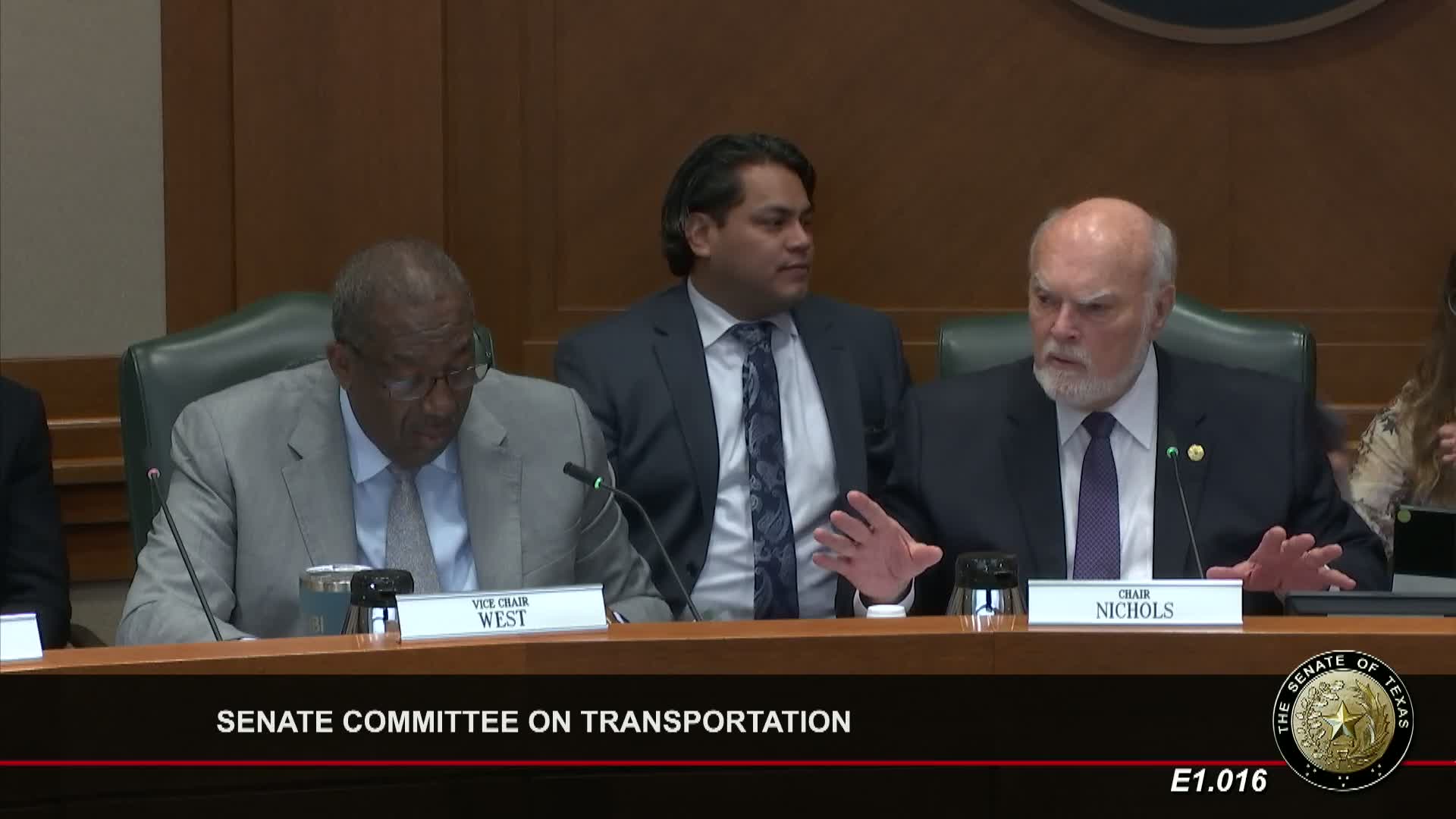Article not found
This article is no longer available. But don't worry—we've gathered other articles that discuss the same topic.
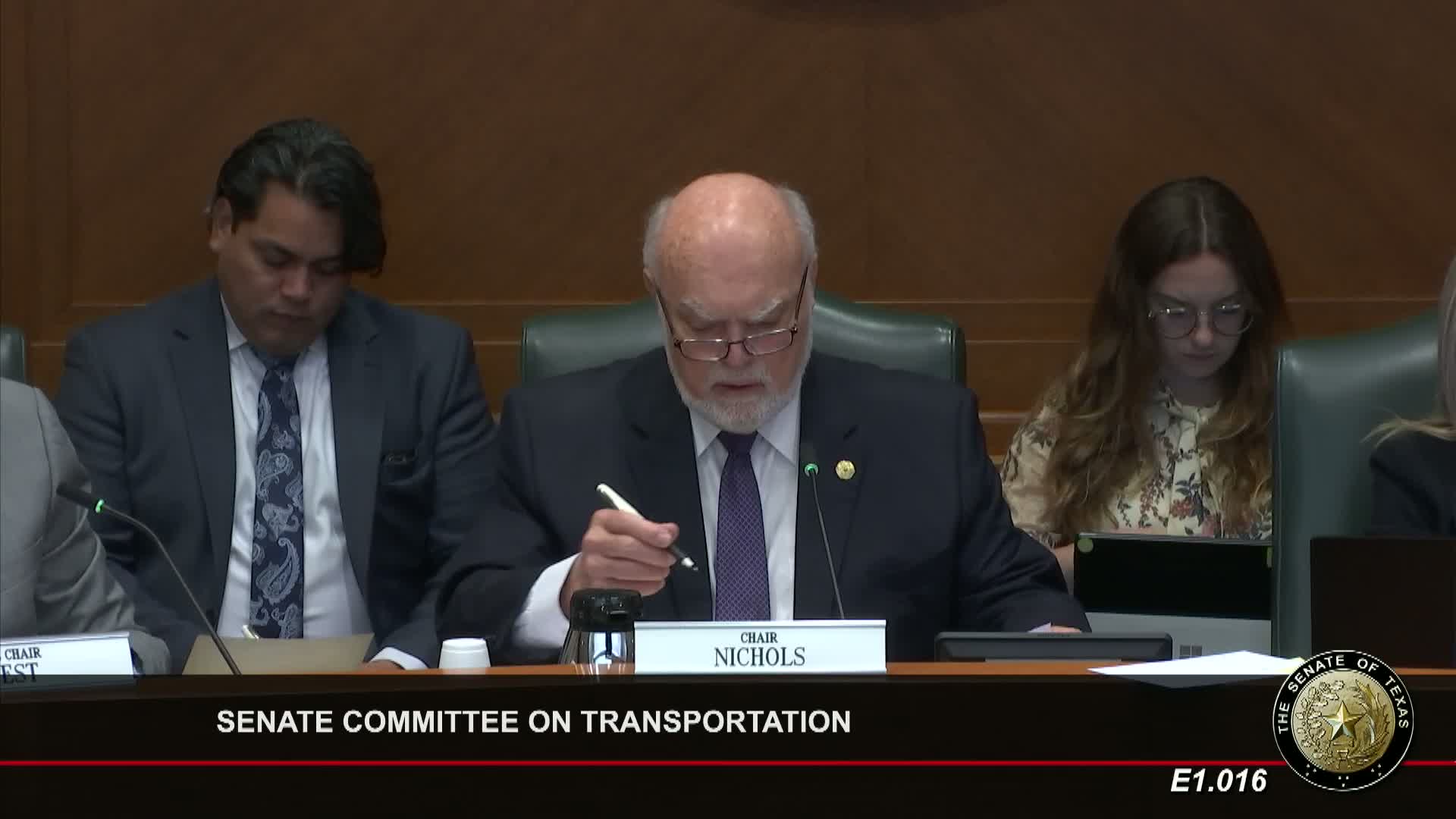
Senate Transportation Committee advances a package of bills on airports, VIN inspections, memorials and other measures
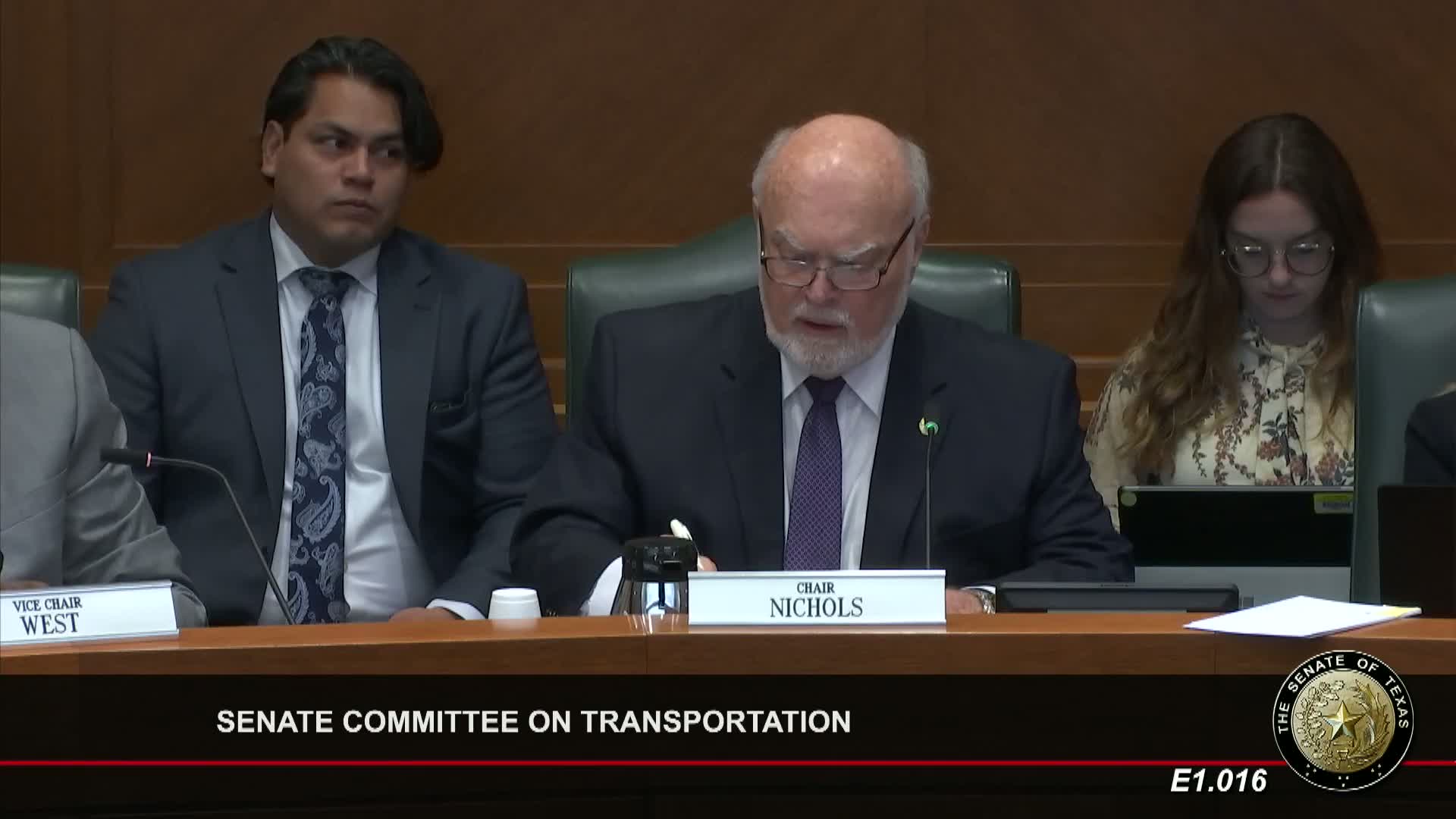
Panel advances bill to codify flashing brake/stop lamps after DPS guidance
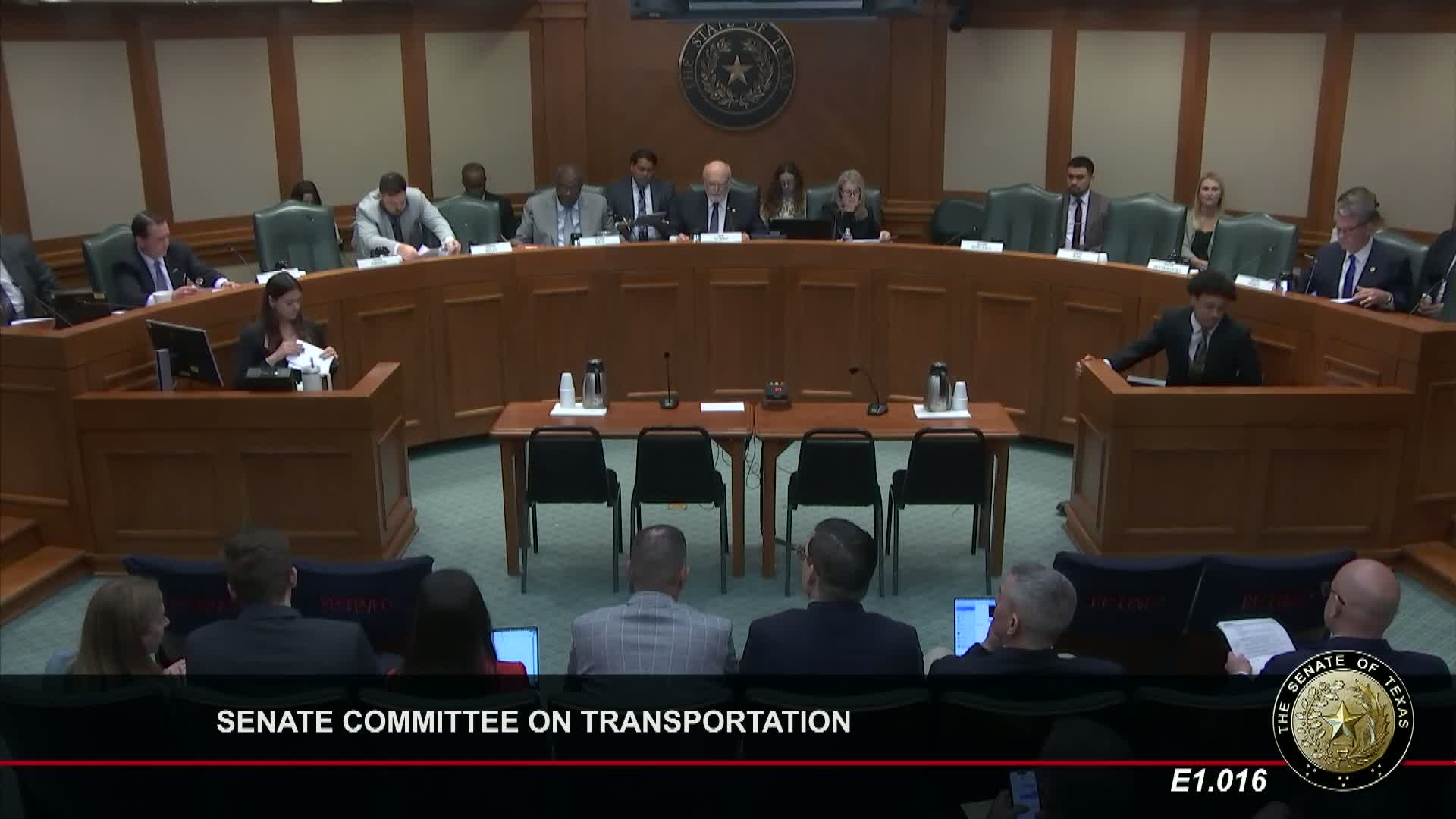
Panel advances bill clarifying release of crash-report data to law enforcement and records partners
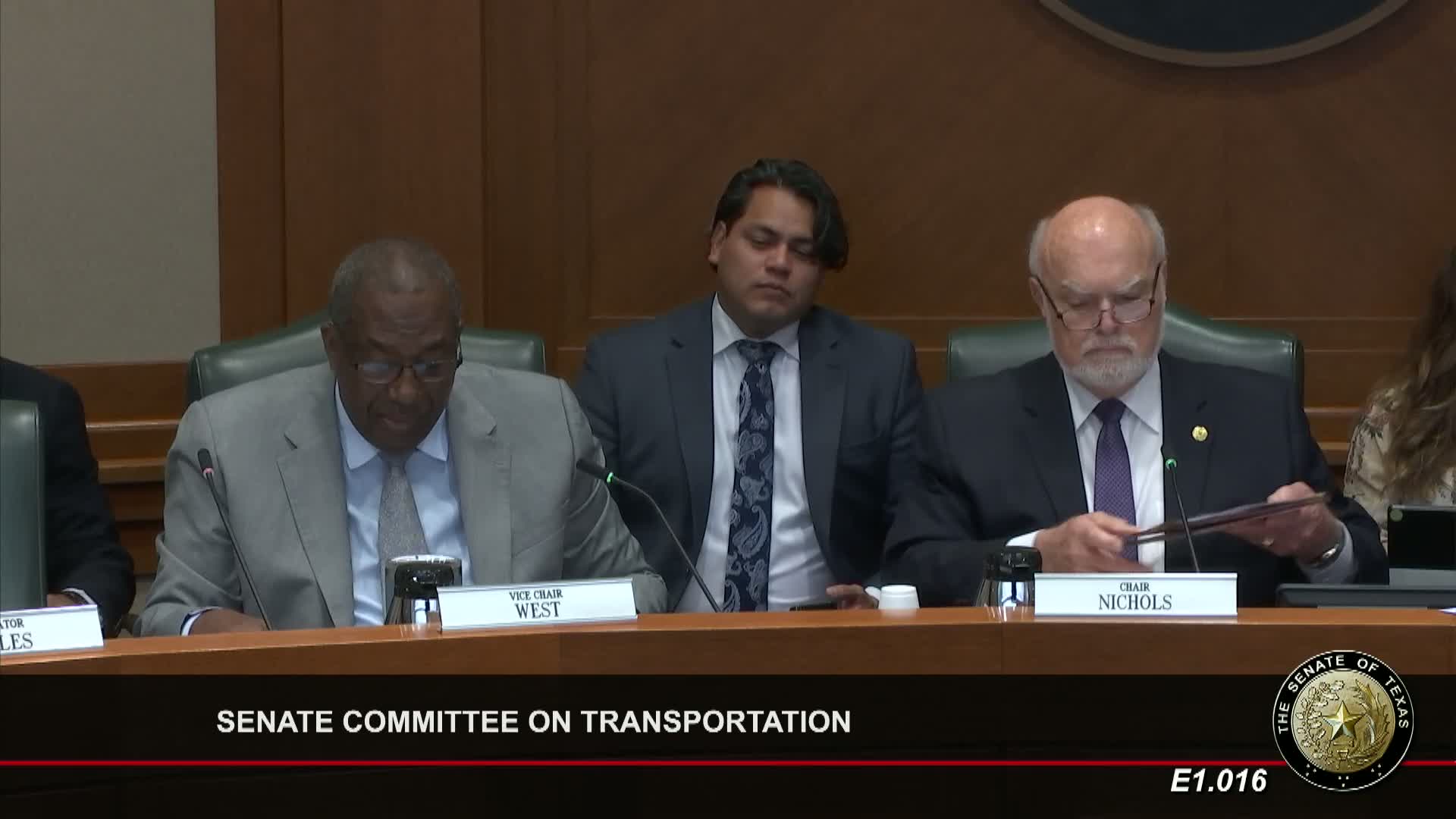
Committee backs lower local match for state aviation grants in economically disadvantaged counties
